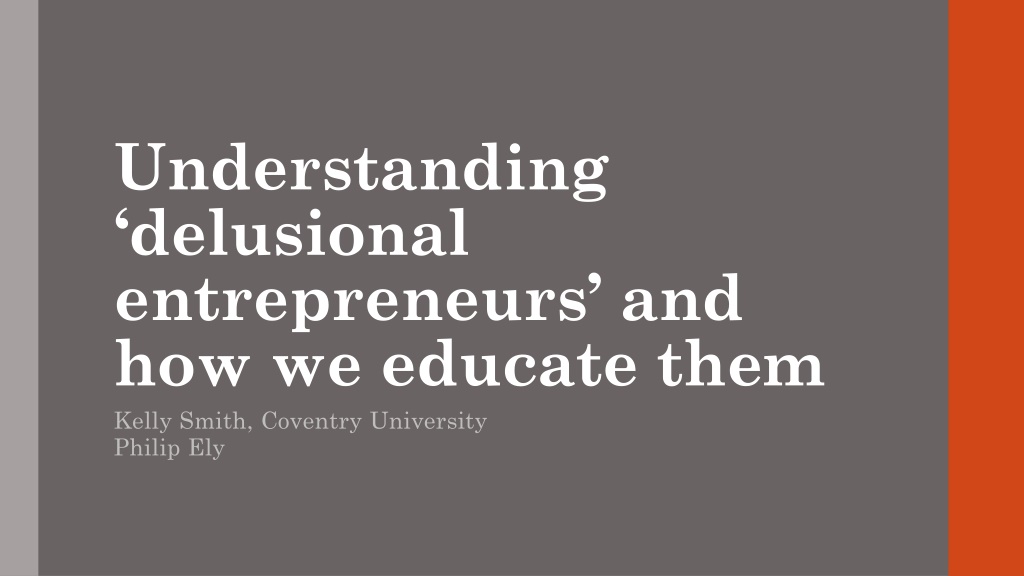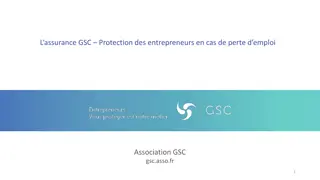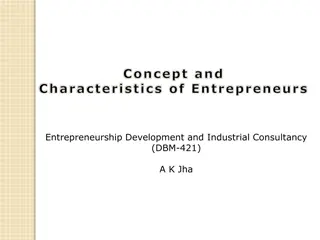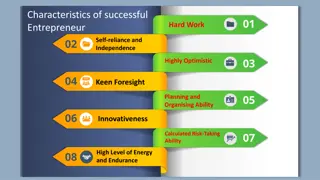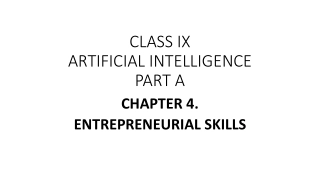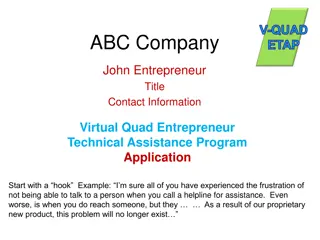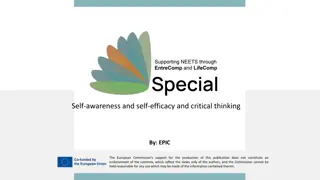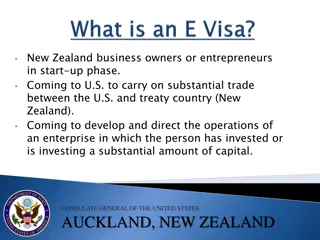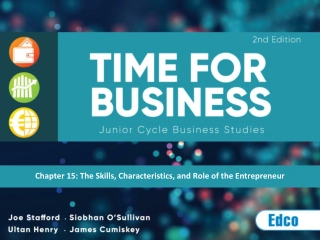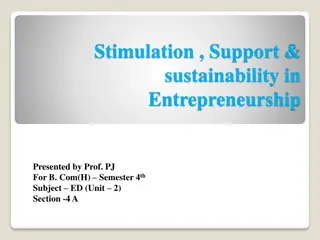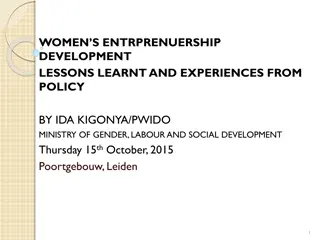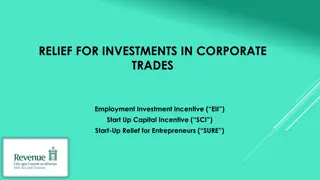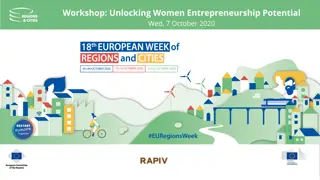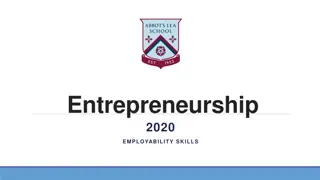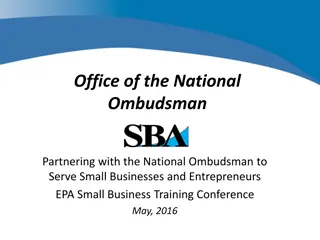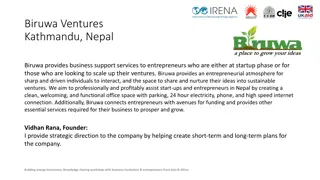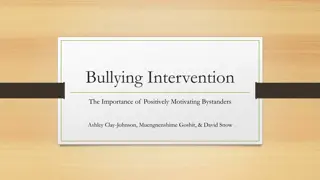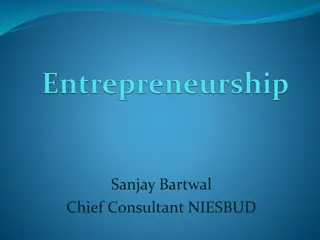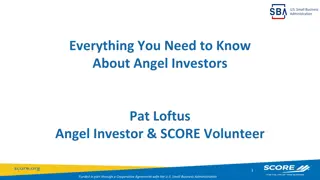Understanding Delusional Entrepreneurs and Educating Them
Delusional entrepreneurs are those who persist in pursuing their business ideas despite clear signs of failure. This behavior can be detrimental as it leads to over-optimism and a lack of learning from mistakes. Studies show that self-employed individuals often have unrealistic financial expectations. Examples of delusional entrepreneurs include those who ignore market realities, lack technical expertise yet believe in their idea, or attract investment without proper planning. Educating such entrepreneurs is crucial to help them avoid costly mistakes.
- Delusional entrepreneurs
- Business failure
- Over-optimism
- Entrepreneurial education
- Unrealistic expectations
Download Presentation

Please find below an Image/Link to download the presentation.
The content on the website is provided AS IS for your information and personal use only. It may not be sold, licensed, or shared on other websites without obtaining consent from the author. Download presentation by click this link. If you encounter any issues during the download, it is possible that the publisher has removed the file from their server.
E N D
Presentation Transcript
Understanding delusional entrepreneurs and how we educate them Kelly Smith, Coventry University Philip Ely
What is a delusional entrepreneur A potential working definition A nascent entrepreneur who pursues a product, service or business idea single-mindedly, ignoring the realistic and pragmatic signs and advice that their ventures will fail
Is this a problem? Whilst product or business failure itself does not need to be seen to be a negative outcome, an entrepreneurs over-optimism, over-confidence, hubris and narcissism could be a major inhibitor to them learning from these failures
And a vision appeared unto them of a great profit: evidence of self-deception among the self-employed Evidence is presented that the self-employed expect better financial outcomes than do employees but experience worse realisations. This is consistent with theories that entrepreneurship is driven by unrealistic optimism. Arabsheibani at al., (2000) Economic Letters. 67, 35-41
Example #1 - Jude Innovative type of photography Needed expensive equipment Refused advice to explore prices that customers would actually pay or to do any financial planning Went to a talk by Richard Branson and reported back that he said if you follow your passion, the money will flow
Example #2 - Jake Had a idea for an innovative new type of headphone that needed a complex technical solution Knew it would work because all his friends and everyone he spoke to thought it was a good idea Had no technical expertise but had a friend who could do CAD
Example #3 - Jessie Had a simple idea that solved a common problem Came over as confident and competent and able to deliver Business and financial planning were very superficial despite prompting Idea and personality drew in investment but lack of planning and grasp of real costs affected actual income levels
Potential outcomes for entrepreneur? Slower than necessary business growth Loss of self-confidence or self-belief Financial loss for self and others Business failure Educational impact Learns on the job Seeks advice when realises needs help Proves advisors wrong Succeeds regardless
Potential outcomes for educator? Watching as an individual fails Picking up the pieces Reputational issues Impact on own self-confidence and self-belief Potential that others will follow Opportunity for learning and development of practice
Create your own examples In table groups Create a scenario from your own experience Discuss How often have you seen this behaviour? How disruptive was it for you as an educator? How did you overcome the issue, or what would you try next? Report back to the room in 15 minutes!
Next Steps First stage of exploring if educators think the delusional entrepreneur is a problem for entrepreneurs and/or for their own practice If this workshop suggests that it is a problem, more work will be done on a methodology to collect experiences of educators This will be used to develop a scale for use with nascent entrepreneurs to further explore delusional attributes and their positive and negative outcomes
Thank you for your help Kelly Smith International Centre for Transformational Entrepreneurship, Coventry University aa7645@coventry.ac.uk @kellyjs
